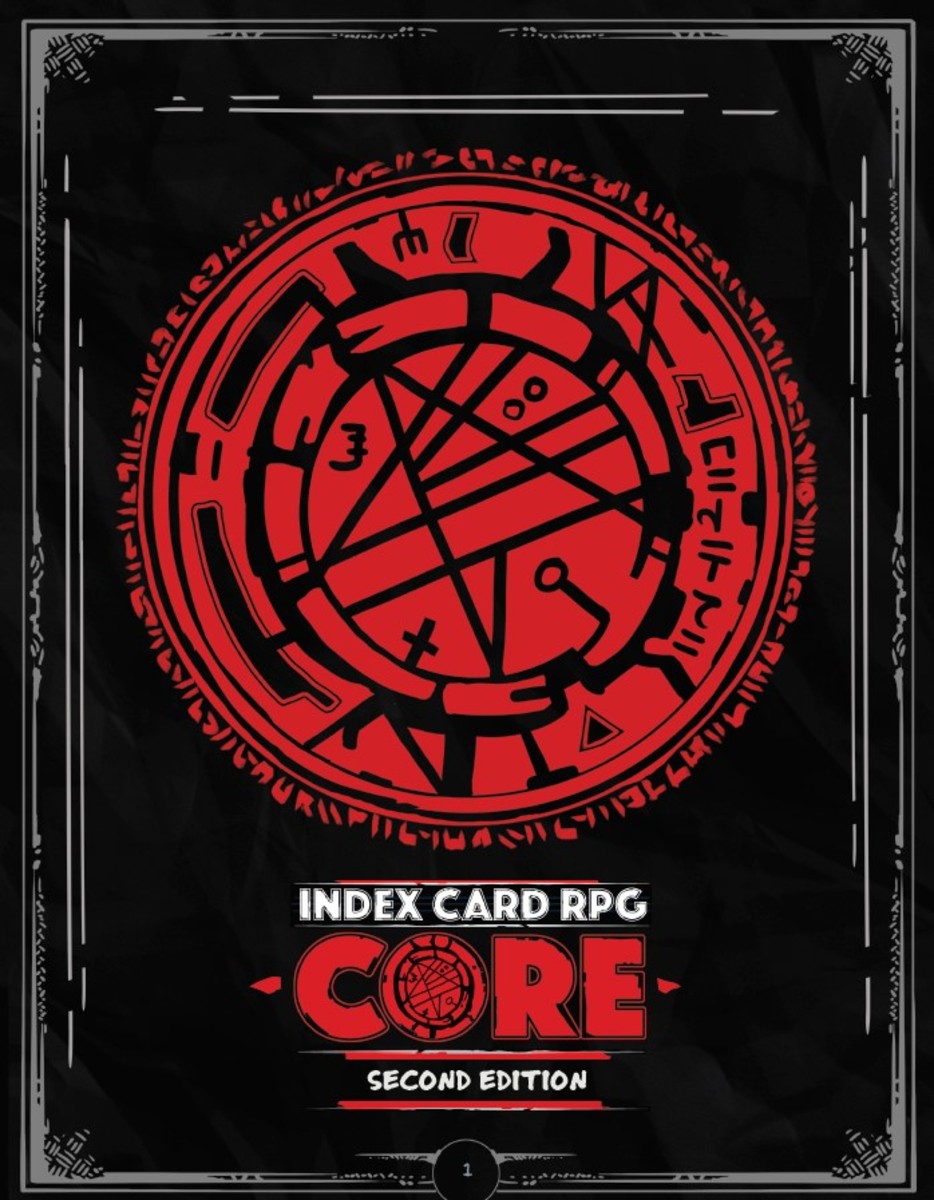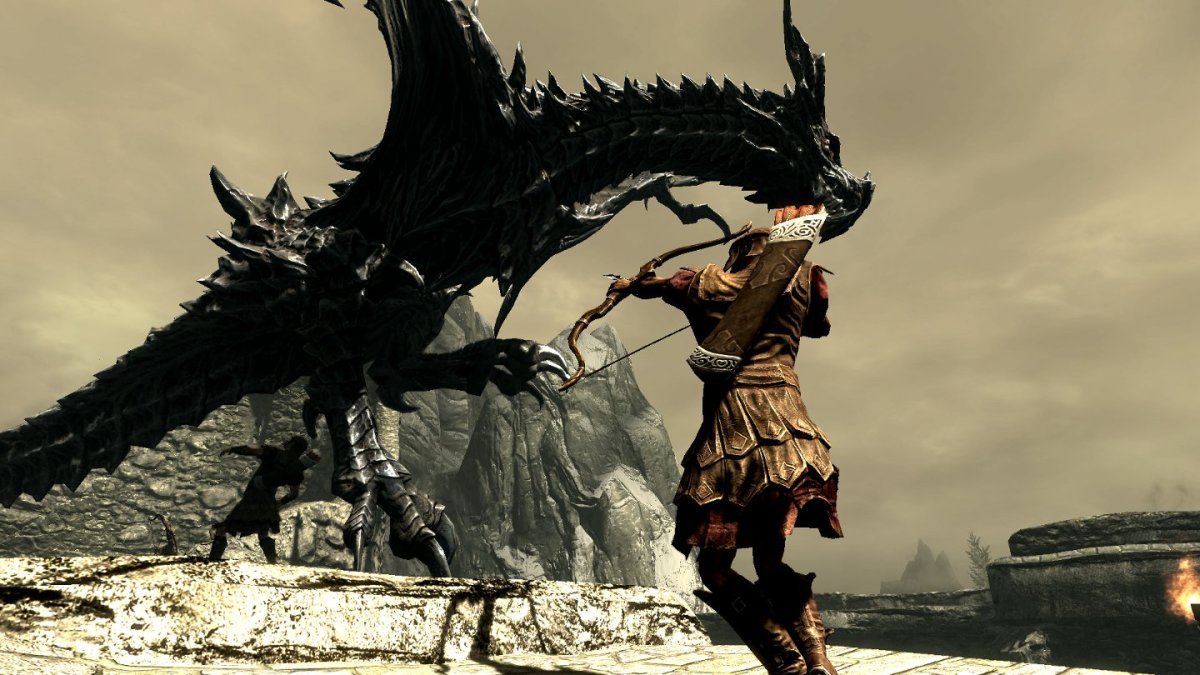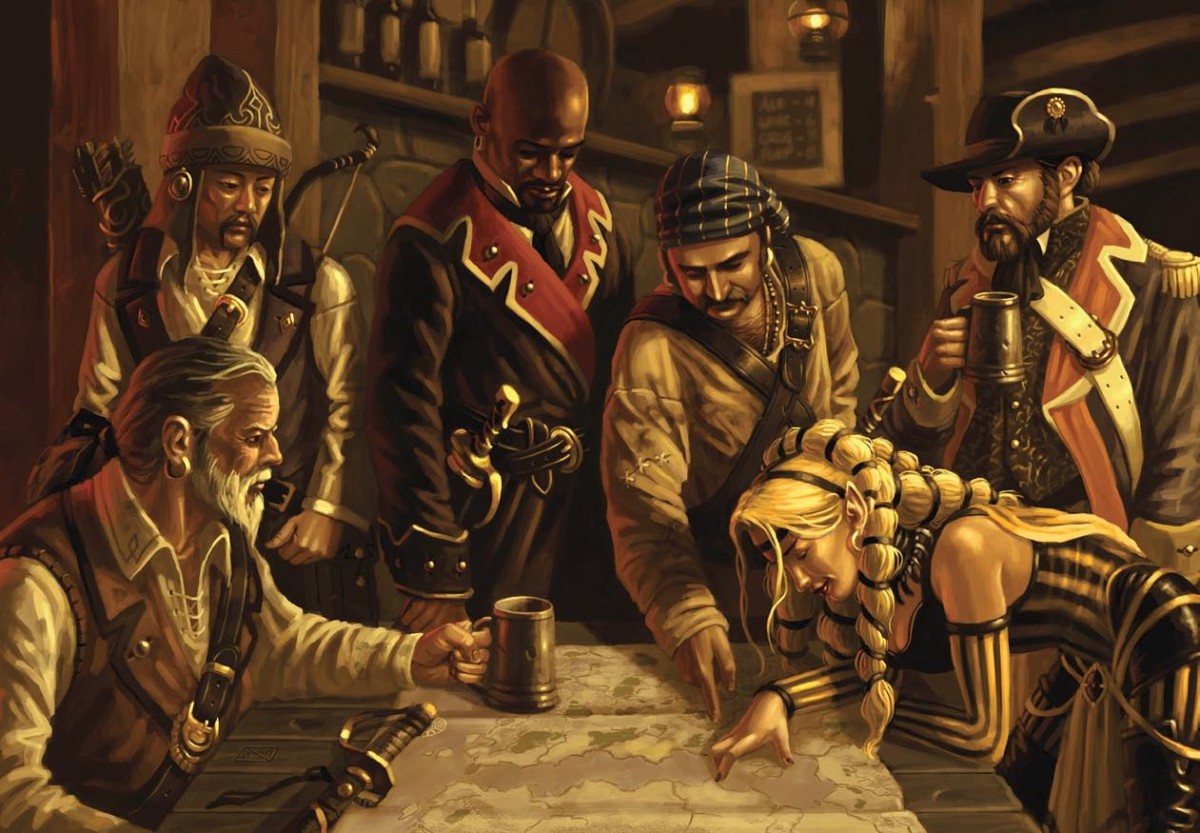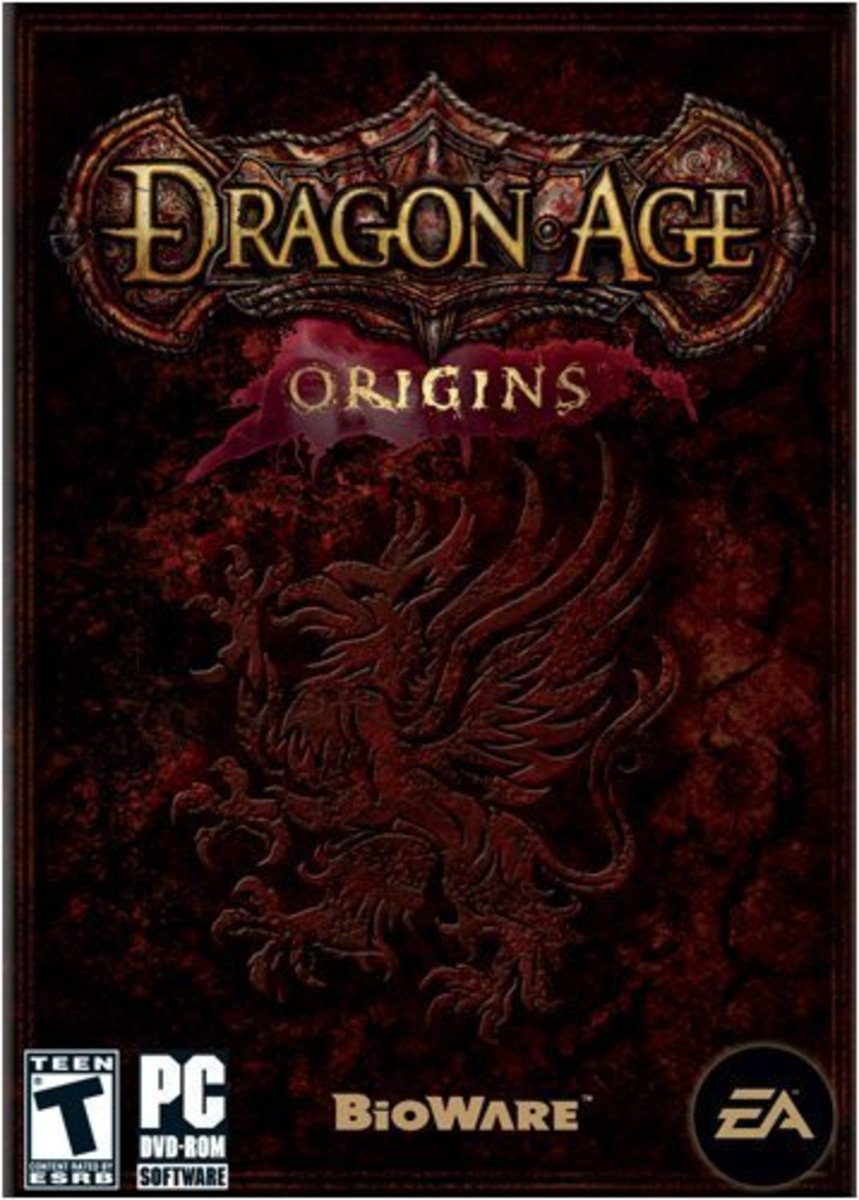An Introduction to Dungeons & Dragons
Your Guide to the Quintessential Role-playing Game
Dungeons & Dragons is the mother of all role-playing games but it's sets of thick rulebooks and stereotyped basement-dwelling players can be a turnoff. This is a shame because D&D is a lively, engaging game with infinitely flexible options. This guide will give you a better idea of how to play the game and ideas to get you started on your own campaign.
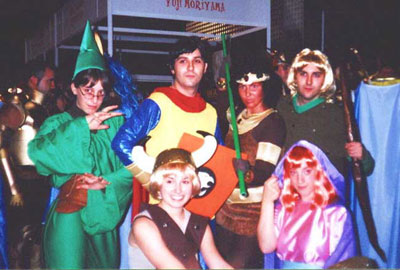
What is a Role-Playing Game Anyway?
Role-playing games (rpgs) come in many forms, but they all ask the players to take on a character and portray that character's personality and actions during the game. Whether it's a science fiction universe or medieval Japan, all role-playing games utilize a bit of acting skills, the player's imagination and some rules of conduct on what kind of interactions are allowed between players and their environment. This does not mean you have to get out of your chair and act out the actions your character is taking. Most rpgs use one person as the game master, and that person is responsible for setting up the environment, obstacles, and storyline, as well as running any ancillary characters the players might encounter.
Dungeons & Dragons is a high fantasy rpg. The world in which it exists bears many superficial similarities to the world of Lord of the Rings , medieval England under King Arthur, Robin Hood and Beowulf . Your characters start as minor heroes and grow in power by completing encounters of skill and combat. You will explore forgotten tombs, ruined castles or mountain fastnesses, opposed or aided by characters controlled by your game master. In Dungeons & Dragons the game master is known as the Dungeon Master or DM. The player's characters (PCs) work together to overcome the obstacles set forth by the DM and are rewarded with treasure, reputation and experience. We'll talk about these things in more detail later. The DM is not working against the PCs, but cooperatively with them to create an enjoyable yet challenging experience for everyone.
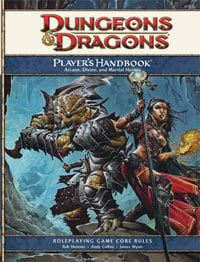
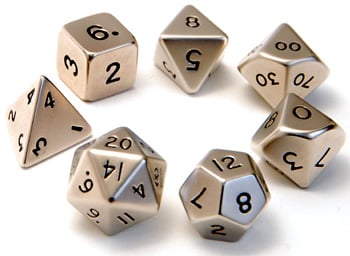
Preparing to Play
In order to play Dungeons & Dragons you will need to assemble a group of interested players. 4-6 players plus one Dungeon Master is the ideal size. Most encounters are tuned for this number of people. It is possible to play with more or less but the DM will have to do some extra work to prepare obstacles for alternate numbers.
Once you have a group together everyone will need access to a copy of the Player's Handbook. This article specifically references 4th Edition D&D, the most recent version, but you can play any of the earlier versions as long as everyone is literally on the same page as many important rules have changed from one edition to another. From the back of the handbook you can photocopy character sheets for each player, or download the template online and print them out. Your DM will also need at minimum a copy of the Dungeon Master's Guide and a Monster Manual. Finally, everyone needs a set of polyhedral dice containing one each of a 4, 6, 8, 12 and 20 sided die and two 10 sided dice. Scratch paper and pencils are also useful.
There are many supplementary texts and accessories for D&D in the form of books, pre-made adventures, dungeon tiles and figurines. Although they can enhance your playing experience, they are not necessary for gaming. All of these items, from dice to tiles are available at local hobby shops, big box book stores, from Amazon.com and sometimes Ebay.com (especially older versions being sold by players who are upgrading to the new one).
Setting Up Characters
To begin playing you first need to create characters. Directions for doing so are found in the Player's Handbook but it often helps to have an experienced player handy for questions and assistance. Many stores that carry D&D products offer a Wednesday night "D&D Encounters" activity, and you can attend their session to get an idea of the game and help with character creation.
Creating your character follows several steps:
- Choosing a race and class
- Determining ability scores
- Choosing class skills, feats, powers and rituals
- Buying equipment
- Filling out your character sheet's information
- Developing your character's appearance, personality and background
Your dungeon master may have specific constraints or requirements for your character so make sure that everyone is in agreement about any house rules or obligations before you begin.
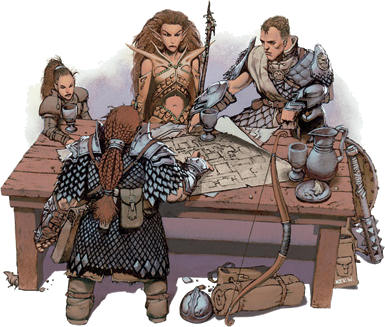
Race and Class
Race refers to the kind of creature you are in the game while class specifies your role or job within the group. For example, the traditional party is a dwarf fighter, elf wizard, halfling rogue and human cleric. Each race has certain benefits and classes it favors, but you can make a character of any race/class combination. The Player's Handbook outlines the core races and classes but supplements offer more options.
4th Edition Core Races
- Dragonborn - a proud and noble race of dragon ancestry
- Dwarf - the traditional mountain-dwelling smallfolk
- Eladrin - related to elves, creates of the Feywild, mystical in nature
- Elf - the traditional forest-loving race
- Half-elf - children of humans and elves with characteristics of both
- Halfling - small creatures similar to hobbits from Tolkein's Lord of the Rings
- Human - our own race is hardly a boring choice and has many good bonuses
- Tiefling - a race tainted by contact with demons, struggling to redeem itself
4th Edition Core Classes
- Cleric - a follower of a deity or tradition committed to advancing their cause
- Fighter - physical characters interested in combat
- Paladin - noble, committed warriors also following a deity or tradition
- Ranger - nimble fighters attuned to the wilds
- Rogue - thieves, tricksters, tumblers and outlaws
- Warlock - spellcasters aligned with a powerful ally
- Warlord - battle commanders strong in their own right
- Wizard - the traditional spellcaster
Your race and class choices determine the rest of your character, so choose something you feel a natural affinity towards.

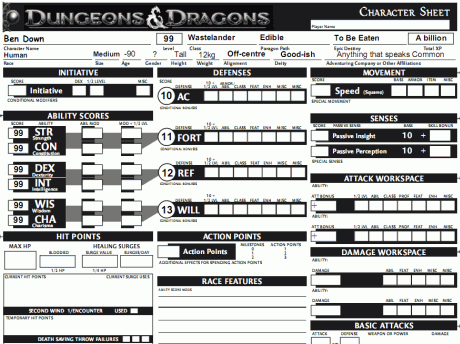
Finishing Your Character
Once you choose your race and class, you can follow the directions in the Player's Handbook to finish the character. You will determine your character's Strength, Dexterity, Constitution, Wisdom, Intelligence and Charisma based on what your class needs. Then you will pick skills your character knows such as Thievery, Endurance, Heal or Acrobatics. Your class determines which skills you have access to. Picking a feat is next. A feat is a special training your character has undergone that gives you a bonus in certain situations. Finally you will pick powers.
Powers are abilities you characters knows. They are used in combat. You will pick two powers your character can use "at will" or at any time with no limit. Additional powers called encounter powers, daily powers and utility powers can be used a limited number of times before your character must rest to recharge them. Your powers can be changed as your character grows so if you wind up not liking a power, you do not have to keep it forever.
After you have made these choices, your character can spend 100 gold pieces on equipment. Gold is the standard of currency in D&D, roughly equivalent to the American dollar or European euro. With this starting gold your character can purchase armor, weapons and basic supplies.
Finally you are ready to flesh out your character. Your description and background can be as simple or complex as you would like but it should answer a few basic questions.
- Where did you come from? Urban or rural, mountain or coastal, or something else?
- Who are your family members? What did they do? Are they still living?
- How did you get to be an adventurer?
- Do you have a goal for the future? Vengeance, redemption, knowledge, wealth or simple adventure seeking are all possibilities.
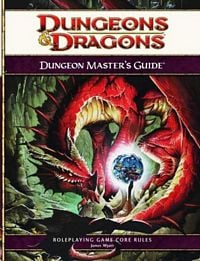
Preparing to DM
Ideally, a Dungeon Master should have experienced playing D&D previously as a character, since they are relied upon to be a rules arbiter for the game, but it is not a requirement. The DM has more preparatory work than PCs. They must envision and create the world the characters live in.
To that extent there are many aids for the Dungeon Master. The aforementioned Dungeon Master's Guide explains the responsibilities of the DM and how to go about creating and running a campaign. The DM should be familiar with its contents before beginning play. The DM should also be knowledgeable about the races and classes their PCs choose. You don't have to know word for word every rule and detail, but you should be able to know the basics and how to look up anything you can't remember.
Creating a campaign world is a time consuming process. At minimum, the DM should have a story hook to draw the players into the adventure, a couple locations to visit, some monsters to fight, a puzzle to unravel and some treasure at the end. How detailed and complicated these individual parts wind up being is up to the DM and the personality of their players. Some groups prefer long exploration and little fighting, others are the opposite. Learning the style of play best suited to your group will make playing the game more enjoyable for everyone.
If you don't have the time or are new to DMing, there are also published adventures available for purchase that are tuned for players of all levels. These ready-to-run adventures only take a little prep work before they are ready for your game. This can be a great way to start your Dungeon Mastering career, getting used to the rules, flow and pace of the game before diving into world creation yourself.
Your other job is to hand out rewards to your players. The most common reward is experience points. Every encounter your PCs complete gains them experience. Once the PCs have enough experience, they level up, gaining access to new and better skills and powers. You can also reward them by having them find magical items to improve their characters, gold and gems to increase wealth or other consumable items that are useful in some way. Reward the PCs appropriately and in balance with the difficulty of the encounter and make sure that there's something for everyone or your players might feel left out.
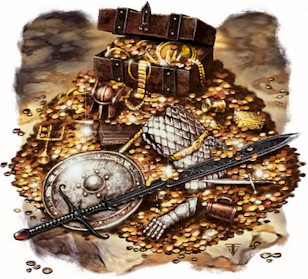
Playing the Game
Finally, you are ready to play the game. You are about to embark on a journey into a fantastic world where bravery and magic make anything plausible and your imagination makes it possible. You will fight monsters both beautiful and terrifying, overcome terrain and traps, seek treasure, power and glory and have a good time with your friends while doing it. I've played D&D for over 15 years with many different groups and it has always been a memorable experience; I have no doubt it will be for you too.



